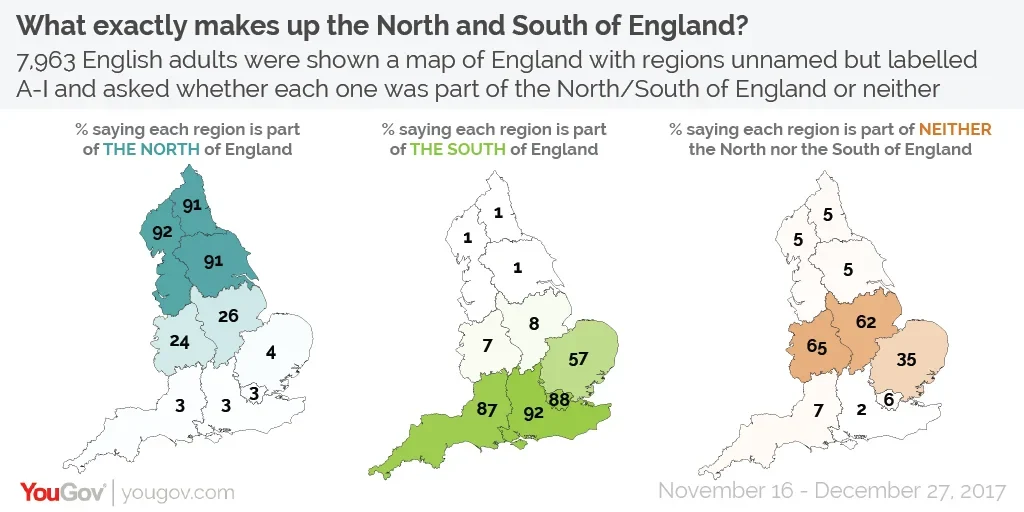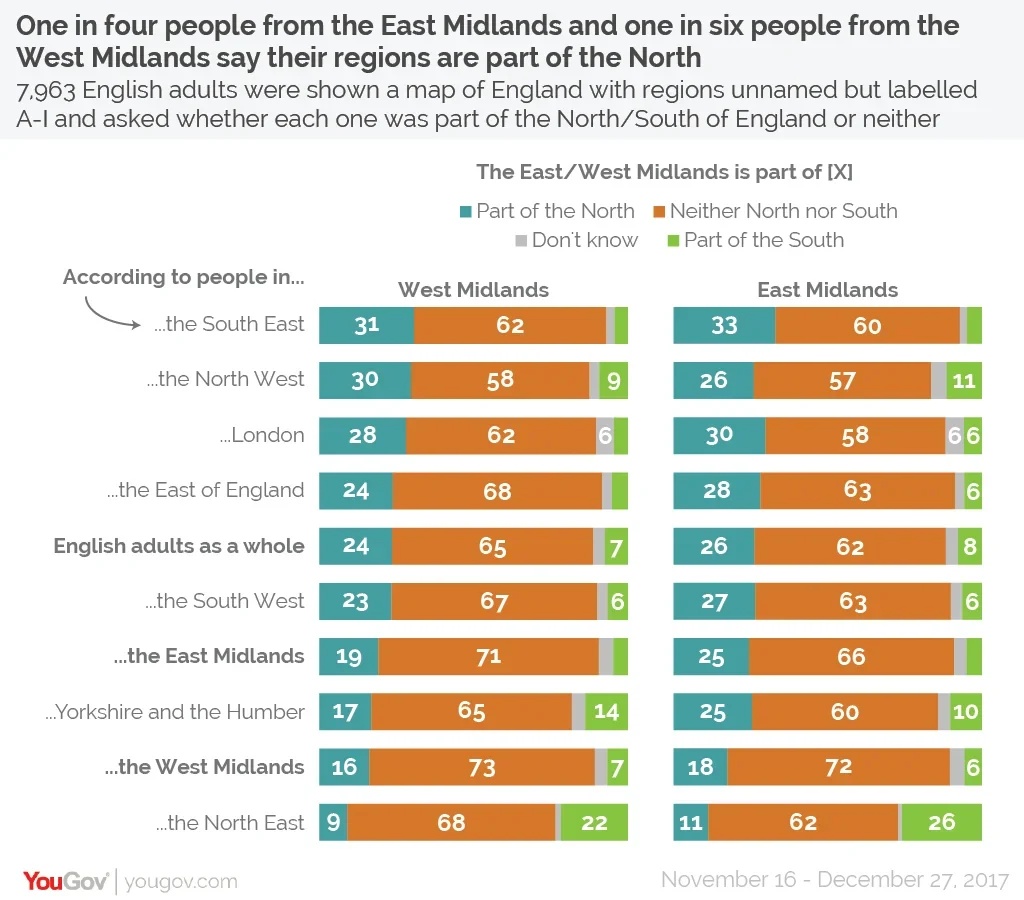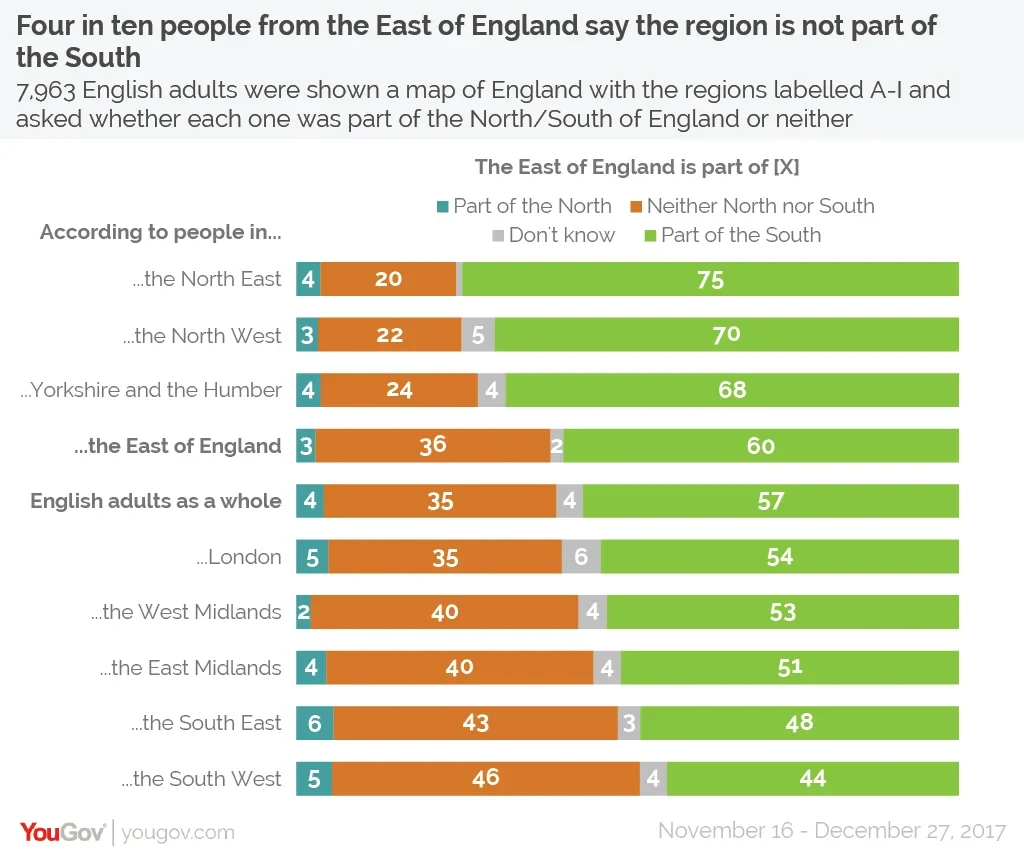A quarter of English adults see the Midlands as part of the North
For entities that make up such a strong part of many English people’s identity, the boundaries of the North and South of England can seem surprisingly ill-defined.
Now new YouGov Omnibus research conducted among almost 8,000 English adults takes a first step in settling the argument by revealing which regions the public believe make up England's North and South.
Respondents were shown a map of England with regional boundaries and each of the nine regions unnamed but labelled A-I.* They were then asked to say for each region whether they thought it was part of "the North" of England, "the South" of England or neither.
Many of the results are exactly as expected. Among the English population as a whole, 91-92% say that the North West, North East and Yorkshire & Humberside are part of the North of England, while 87-92% say that the South West, South East and London are part of the South of England.

Of more interest are attitudes towards the Midlands and East of England.
The Midlands
While the majority of English adults said that the East and West Midlands were part of neither the North nor South (62-65%, respectively), people are much more likely to assign them to the North (24-26%) than the South (7-8%).
This includes Midlanders themselves, with 25% of East Midlanders and 16% of West Midlanders saying their own region was part of the North, compared to 5% and 7% respectively saying it forms part of the South.
Intriguingly, North Easterners hold a dissenting view. They are alone among the regions in being more likely to say that the East and West Midlands are part of the South (22% and 26%, respectively) than the North (11% and 9%).

The East of England
The East of England region is a relatively new concept. Until the 1990s, three of the six counties that make up the current East of England region (Norfolk, Suffolk and Cambridgeshire) formed the East Anglia "standard statistical region", while Bedfordshire, Essex and Hertfordshire were considered part of the South East.
English people are less likely to consider the East of England a part of the South than they are for the other three regions that sit below The Wash: while 87-92% of Englanders say the South West, South East and London are part of the South, this figure is just 57% for the East of England. Instead, a full third of English adults (35%) consider it to be in neither the North nor South.
Those living in the East of England aren’t especially more likely to think they are Southerners – 60% consider their region to be part of the South and 36% neither North nor South. They are, however, more likely to see the East of England as part of the South than other Southerners (44-54%) and Midlanders (51-53%) are, while Northerners are more likely to have them down as Southerners (68-75%).

*We avoided naming the regions to prevent giving the respondents prompts depending on whether a region did or did not have the word "North" or "South" in its name. An initial test survey was run where half of the respondents (about 1,000) were shown a map as described above in the article while the other half simply saw the regions listed by name. The most noticeable difference in the results between these two variables was that English people are substantially more likely to say the East of England is not part of the South (-23%) with the bulk of the difference going towards saying it was neither North nor South (+14%).
There was also a small movement away from putting the East and West Midlands in the "neither" category (-7% and -11% respectively) and towards putting them in the South (+4%,+6%) or saying "don't know" (+4%, +3%).
Photo: Getty







